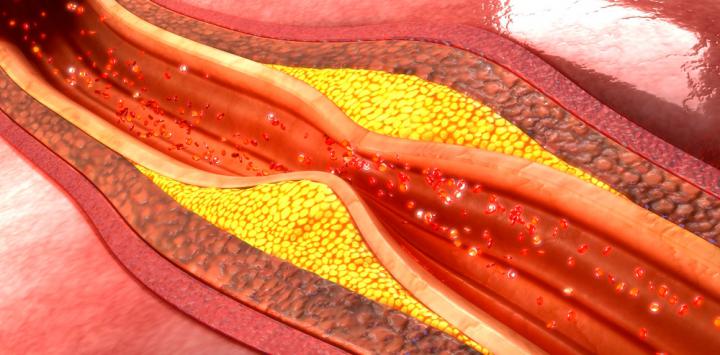A study led by researchers has suggested that skipping breakfast doubles the risk of developing “subclinical atherosclerosis”, a variety of arteriosclerosis characterized by the deposit of fatty substances inside the arteries, making them harder.

Atherosclerosis occurs when fatty deposits, along with cholesterol and other forms of cellular debris, accumulate within the arteries. This reduces arterial elasticity and, over time, can lead to coronary heart disease, angina, or peripheral artery disease, among other conditions. Subclinical atherosclerosis is a latent form of the condition, with no immediate symptoms.
Breakfast is the most important meal of the day
Conventional wisdom says that breakfast is the most important meal of the day, and the first set of findings suggest that food may be even more important than traditionally believed.
Research results show that those who consume less than 5 percent of their daily calorie intake during breakfast may have twice the risk of developing subclinical atherosclerosis compared to people who eat a high-energy breakfast.
A high-energy breakfast might include a good source of protein, such as yogurt or eggs, whole grains, and fruits.
Studying breakfast patterns
PESA is a prospective study, comprising more than 4,000 participants with no history of cardiovascular disease. The participants were between 40 and 54 years old. They used multi-vascular imaging techniques and collected information about the participants’ lifestyle. The first informed the team about the presence of plaques in the carotid arteries, iliofemoral arteries, aorta and coronary arteries.
The participants were monitored for 6 years, and the collected data were statistically analyzed using multivariate regression models.
Breakfast patterns are at risk
The study found that 27 percent of the participants regularly ate a high-energy breakfast or a breakfast that offered more than 20 percent of the recommended daily calories.
The majority of the population (70 percent) regularly eat a low-energy breakfast, or one that provides between 5 and 20 percent of the daily calorie intake.
Finally, 3 percent of the participants ate very little (less than 5 percent of the recommended calories) or skipped breakfast entirely.
Overall, the researchers found that people in the latter group were more likely to have unhealthy eating and lifestyle habits. These include a poor diet, smoking, and frequent alcohol consumption.
The imaging data also revealed that they had 1.5 times more atherosclerotic lesions than people who ate a high-energy breakfast.
Also, in some vascular areas, such as the carotid artery and iliofemoral arteries, breakfast patterns were up to 2.5 times more likely to have atherosclerotic plaques.
This group also scored higher on the list of cardiovascular risk factors; those who skipped breakfast tended to have higher waist circumference and body mass index (BMI), as well as increased levels of fasting blood sugar and blood lipids or fats.
Importance of the findings
Study co-author says the findings show that skipping breakfast is “a bad habit that people can proactively change to reduce their risk of heart disease.”
It is known that making lifestyle changes can reduce the risk of cardio metabolic disorders such as diabetes, obesity, and hypertension.
“The PESA study makes an invaluable contribution to scientific knowledge and public health.”
“Our findings are important to healthcare professionals and could be used as a simple message for lifestyle-based interventions and public health strategies, as well as to inform dietary guidelines and recommendations.”
Poor dietary choices are generally made relatively early in life and, if left unchanged, can lead to clinical cardiovascular disease later in life. The adverse effects of skipping breakfast can be seen early in childhood in the form of childhood obesity, and although people who skip their breakfast generally try to lose weight, they often end up eating more and unhealthy foods later in the day.
“Skipping breakfast can cause hormonal imbalances and disrupt circadian rhythms. That breakfast is the most important meal of the day has been shown to be correct in light of this evidence.”
